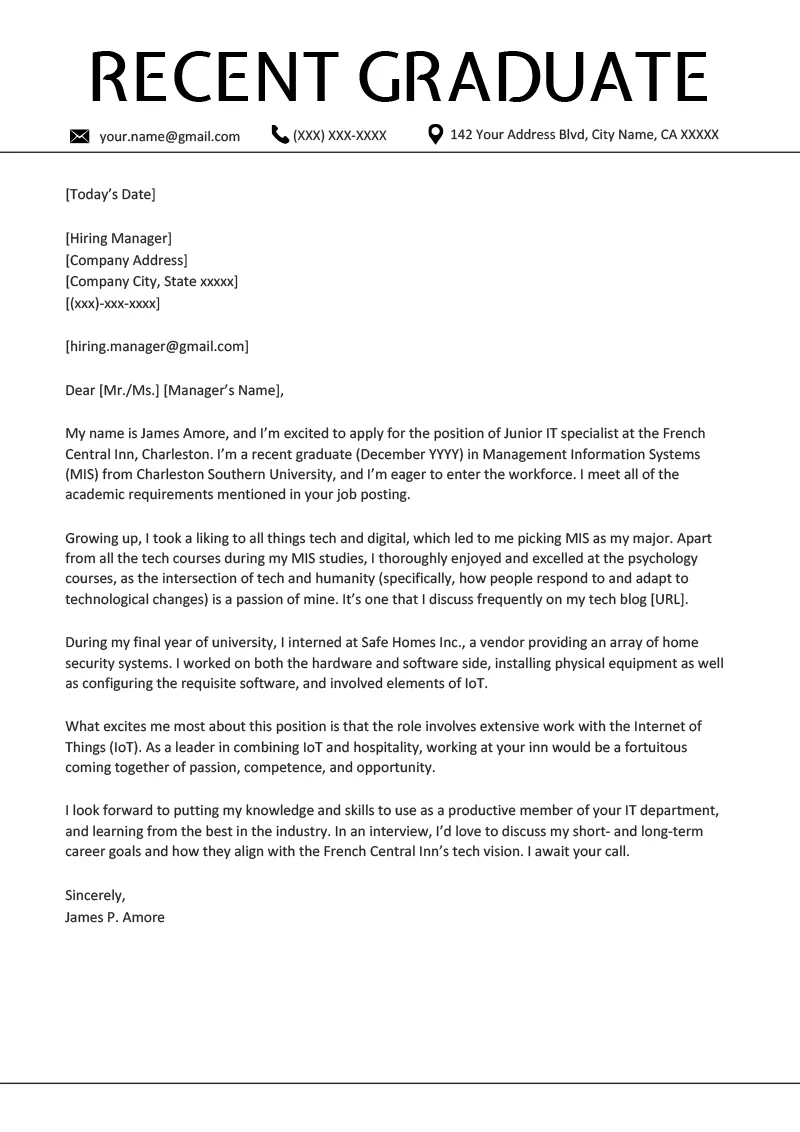Understanding the Importance of a Graduate Cover Letter
As a recent graduate entering the competitive job market, a well-crafted cover letter is your first and often most crucial opportunity to make a positive impression on potential employers. It serves as more than just a formality; it’s a powerful tool that allows you to introduce yourself, showcase your unique skills and experiences, and express your genuine interest in the position. Unlike a resume, which provides a factual overview of your qualifications, a cover letter gives you the space to tell your story, demonstrating your personality, enthusiasm, and the value you can bring to the organization. A compelling cover letter significantly increases your chances of landing an interview by capturing the hiring manager’s attention and setting you apart from other applicants. It also clarifies your career aspirations and how they align with the company’s objectives.
Key Elements of a Winning Cover Letter
A successful cover letter is built on a foundation of essential components, each designed to make a lasting impact. These elements work together to create a cohesive and persuasive narrative that showcases your strengths and aligns them with the job requirements. From the opening lines to the closing statement, every word matters. Understanding these key ingredients and how to integrate them effectively will help you craft a cover letter that not only grabs attention but also successfully conveys your qualifications, enthusiasm, and suitability for the role, significantly increasing your chances of getting an interview and moving forward in the hiring process.
Contact Information and Date
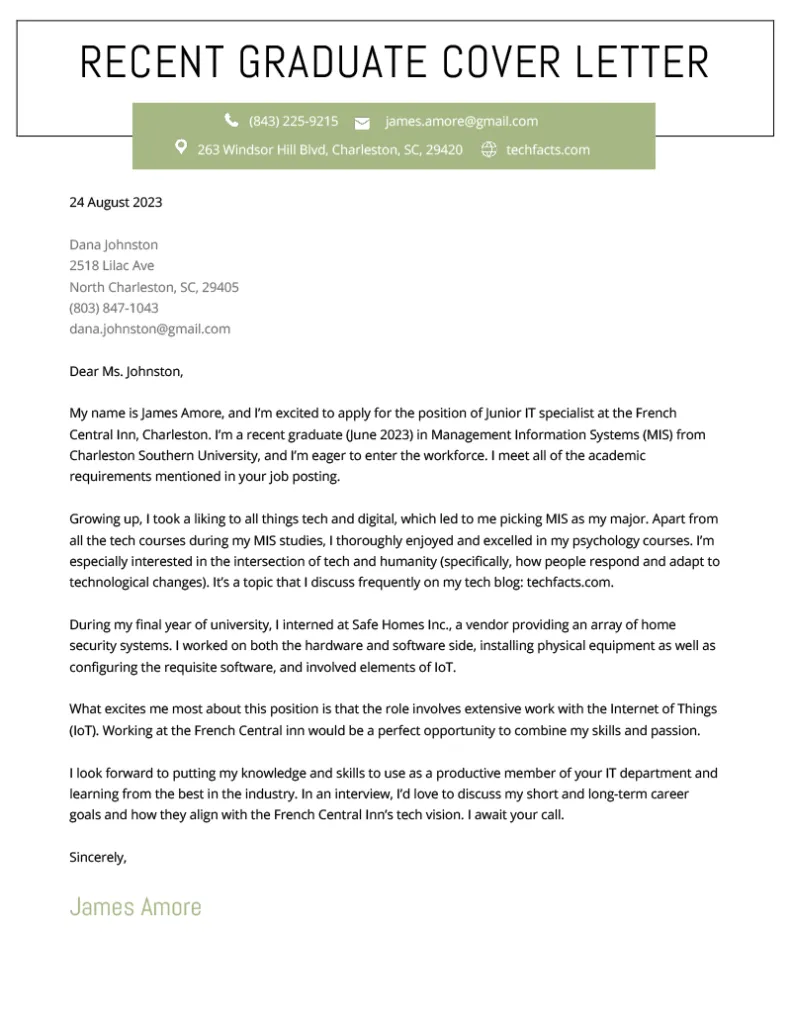
Start your cover letter by including your contact information (name, address, phone number, and email address) at the top, left-aligned. Beneath your contact information, include the date. This ensures the recipient can easily reach you and provides a professional appearance. The date should reflect the day you are sending the letter. This format sets the professional tone for the rest of the letter. Ensure your email address is professional and appropriate for a job application, avoiding nicknames or unprofessional language. Including this information is a standard practice and facilitates communication, making it simpler for the hiring manager to connect with you if they are interested in your application.
Addressing the Hiring Manager
Always address the hiring manager by name whenever possible. Research the company and role to find the hiring manager’s name—this shows initiative and attention to detail. Use a formal salutation like “Dear Mr./Ms./Mx. [Last Name]”. If you cannot find a specific name, use a professional alternative such as “Dear Hiring Manager” or “Dear [Department Name] Team”. Avoid generic greetings like “To Whom It May Concern,” as they signal a lack of personalization. Addressing the letter to a specific person immediately grabs their attention and demonstrates you’ve taken the time to personalize your application. It demonstrates respect and shows you’re genuinely interested in the opportunity, increasing the chances of the hiring manager engaging with your application.
Opening Paragraph Captivate from the Start
The opening paragraph is your chance to make a strong first impression. Start by clearly stating the position you are applying for and where you found the job posting. Then, immediately grab the reader’s attention by highlighting your key qualifications or a compelling accomplishment relevant to the role. Show your enthusiasm and explain why you are interested in the company. Avoid generic phrases; instead, focus on what excites you about the opportunity and what you can offer. This initial paragraph sets the tone for the entire letter. It influences the reader’s impression of you and prompts them to continue reading, which is essential for a successful application.
Highlighting Your Skills and Experience
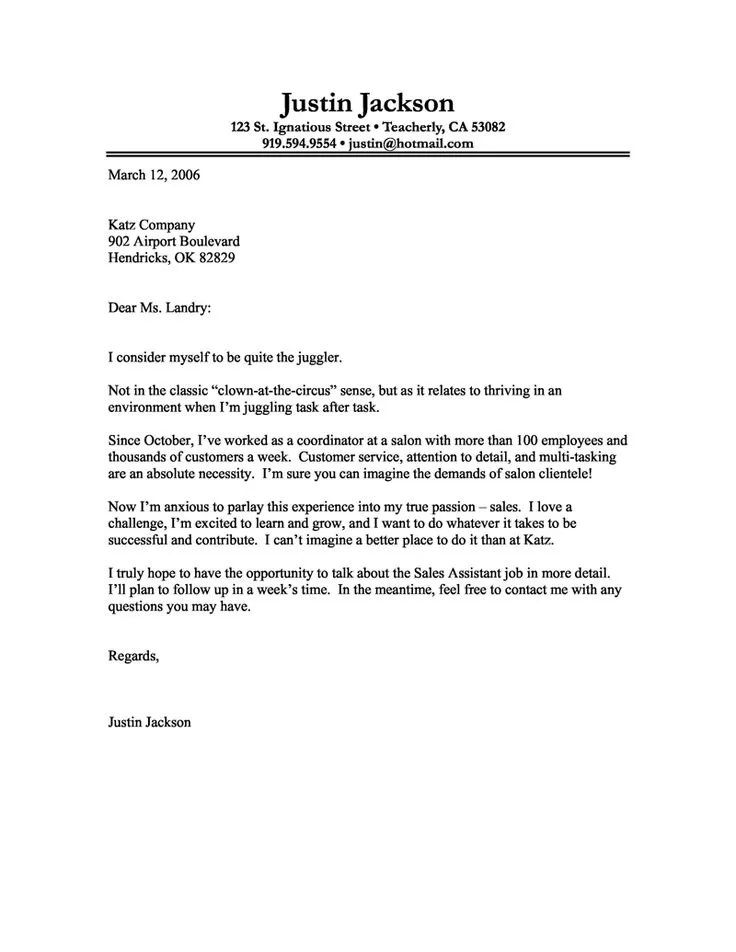
The body of your cover letter is where you showcase your skills and experiences in detail. Provide specific examples from your academic projects, internships, or any relevant work experience to demonstrate your abilities. Instead of just listing your qualifications, use the STAR method (Situation, Task, Action, Result) to tell a compelling story about how you handled a challenge or achieved a goal. Show how your skills align with the job requirements and explain why you are a good fit for the role. This allows you to connect your experiences to the job responsibilities, highlighting your relevant knowledge and capabilities. Always tailor this section to the specific job and company, emphasizing the skills and experiences that are most pertinent.
Showcasing Relevant Skills
Identify the essential skills mentioned in the job description and provide concrete examples of how you have utilized them in the past. This could include technical skills, such as proficiency in specific software or tools, as well as soft skills like communication, teamwork, and problem-solving. When describing your skills, use action verbs to showcase what you did and how you did it. For example, instead of saying “Responsible for project management,” you could say “Managed and successfully delivered three complex projects within budget and ahead of schedule, utilizing Agile methodologies.” This gives the hiring manager a clear understanding of your capabilities and how they align with the job’s needs. Demonstrate how your skills are transferable and can be applied to the new role.
Quantifying Achievements
Whenever possible, quantify your achievements with data and numbers. For example, if you improved a process, state the percentage of efficiency gained. If you were part of a team, specify your contribution and the results achieved. Quantifiable achievements add credibility to your claims and demonstrate your impact in previous roles. Instead of saying “Improved customer satisfaction,” say “Increased customer satisfaction by 20% through implementing a new feedback system.” Numbers make your accomplishments more impactful and easier for the hiring manager to understand. This shows that you not only understand what is required but also deliver tangible results, making you a more attractive candidate.
Tailoring Your Cover Letter
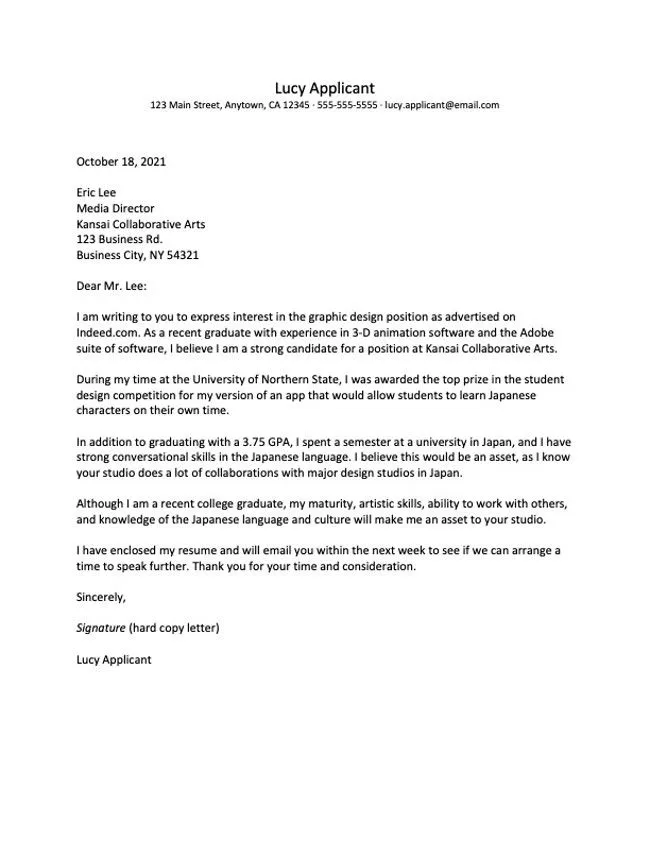
One of the biggest mistakes graduates make is sending a generic cover letter. A generic letter shows a lack of interest and effort. Customize your cover letter for each specific job application. This involves researching the company, understanding the job description, and highlighting the skills and experiences that are most relevant. Avoid using a template without making significant adjustments. Show that you understand the company’s mission, values, and recent achievements. This personalization increases your chances of getting noticed and demonstrates your genuine interest in the role and the organization. Demonstrating that you have taken the time to tailor your application will resonate with hiring managers and significantly improve your chances.
Researching the Company and Role
Before you write your cover letter, take the time to thoroughly research the company and the specific role you’re applying for. Visit the company’s website, read recent news articles, and explore their social media profiles. Understand their products or services, their target audience, and their company culture. This research will provide valuable insights that you can use to tailor your cover letter. Review the job description carefully, paying close attention to the required skills, responsibilities, and qualifications. Identify the key requirements and highlight how your experiences and skills align with them. Mentioning specific projects, initiatives, or values that resonate with the company shows that you’ve done your homework and that you are genuinely interested in the opportunity, not just applying for any job.
Using Keywords Effectively
Carefully review the job description and identify the keywords used to describe the required skills and qualifications. Use these keywords naturally within your cover letter to demonstrate that you possess the necessary abilities. However, avoid keyword stuffing—the overuse of keywords that makes your writing sound unnatural. Instead, integrate the keywords seamlessly within your sentences, providing context and illustrating how you have used those skills in the past. This practice helps your application pass through applicant tracking systems (ATS) and signals to the hiring manager that you have the skills they are looking for. It shows that you understand the role’s requirements and can communicate your capabilities in a way that aligns with the company’s expectations. Always prioritize clarity and readability.
Formatting and Tone
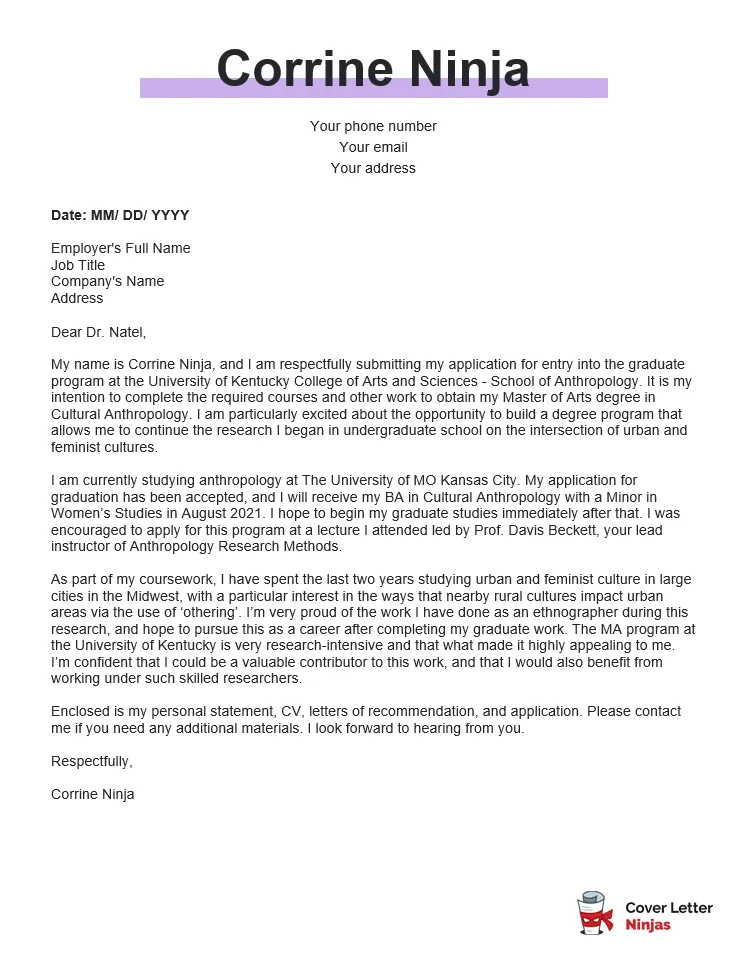
The formatting and tone of your cover letter are crucial for making a positive impression. Your letter should be easy to read and visually appealing, reflecting your attention to detail. Your tone should be professional, enthusiastic, and tailored to the company’s culture. Adhering to these guidelines helps you present yourself as a polished, thoughtful candidate, demonstrating your suitability for the role and the organization. Proper formatting and a professional tone make your cover letter more engaging and ensure that your qualifications are presented effectively, increasing the likelihood of a favorable response from the hiring manager.
Maintaining a Professional Tone
Maintain a professional tone throughout your cover letter. Use formal language and avoid slang, jargon, and contractions. Keep your language clear and concise, making sure your message is easy to understand. Show enthusiasm but avoid being overly familiar or casual. The tone should reflect your respect for the company and the opportunity. Ensure that your writing is free of errors in grammar, spelling, and punctuation. Avoid using overly complex sentences or overly flowery language. A professional tone shows that you take the application process seriously and can communicate effectively in a business setting. This helps you make a strong first impression and position yourself as a reliable and capable candidate. Using professional language helps convey confidence and competence.
Proofreading and Editing
Proofreading and editing are essential steps in the cover letter writing process. Always carefully proofread your cover letter multiple times. Check for grammatical errors, spelling mistakes, and punctuation issues. Consider having a friend, family member, or career advisor review your cover letter as a second pair of eyes can catch mistakes you may have missed. Ensure that your formatting is consistent throughout the document, and that your contact information is correct. Errors can undermine your credibility and give the impression that you are not detail-oriented. Taking the time to proofread shows your professionalism and dedication. Proofreading also helps ensure that your message is clear, concise, and compelling, enhancing your chances of landing an interview. Proofreading is a key step for a successful cover letter and application.
Closing Paragraph and Call to Action
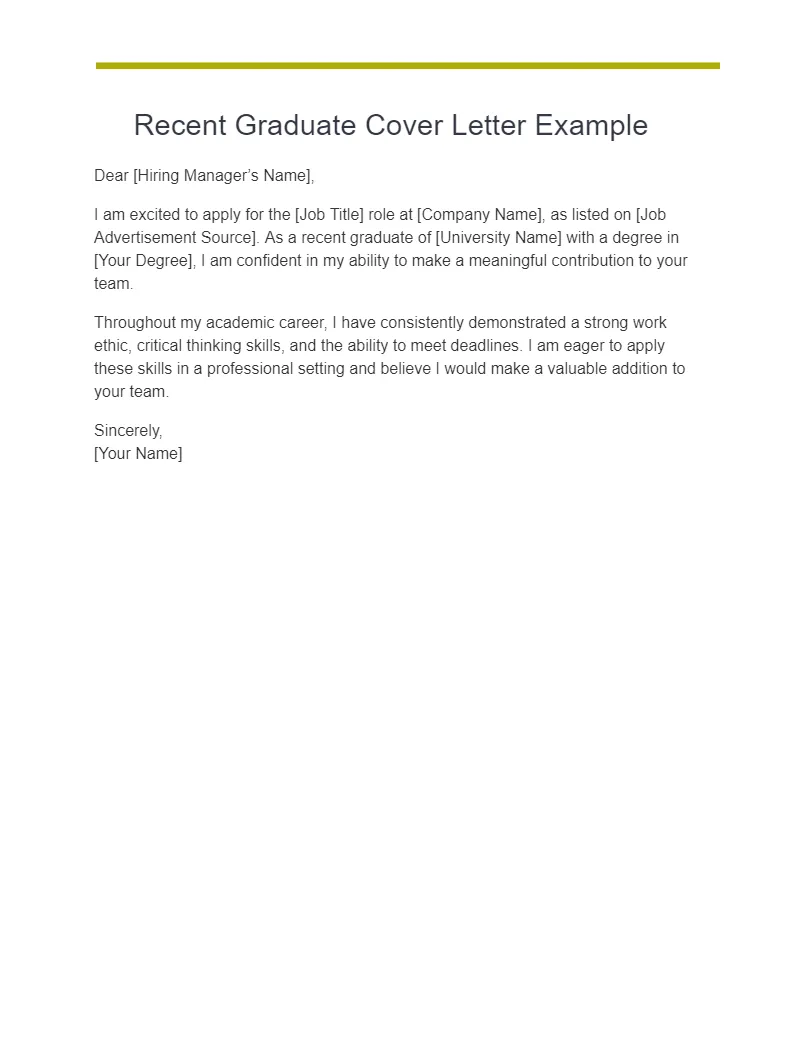
The closing paragraph of your cover letter is your final opportunity to leave a lasting impression and encourage the hiring manager to take action. It should summarize your interest, reiterate your enthusiasm, and thank the reader for their time and consideration. It is also the place to include a clear call to action, such as expressing your availability for an interview. This approach helps you end on a positive note and guides the hiring manager to the next step in the hiring process. A well-crafted closing paragraph reinforces your key message, leaving a positive and memorable impression. It helps the hiring manager feel confident in their decision to contact you, taking you one step closer to getting hired. A strong conclusion makes all the difference.
Expressing Enthusiasm and Gratitude
In your closing paragraph, reiterate your enthusiasm for the opportunity and express your gratitude to the hiring manager for their time and consideration. Show your genuine interest in the role and the company. Thanking the hiring manager is a sign of respect and courtesy. This leaves a positive final impression. Use phrases like “I am excited about the opportunity to contribute to…” or “Thank you for considering my application.” Expressing your gratitude shows your appreciation for their time and highlights your professionalism. It demonstrates your eagerness to move forward and increases the likelihood of a positive response. Demonstrating sincere gratitude makes your cover letter more memorable and shows you appreciate their time.
Providing Contact Information
In the closing paragraph, reiterate your contact information to ensure it’s readily accessible to the hiring manager. Include your phone number and email address. This makes it easy for them to reach you to schedule an interview. Making sure your contact information is easily available facilitates a smoother communication process. It also shows you are eager to be contacted and readily available for the next steps. Double-check your contact details to avoid any errors. Providing this information one last time makes sure that they can easily reach you, which helps ensure that you do not miss any opportunities. It reflects your understanding of the importance of efficient communication.
Common Mistakes to Avoid
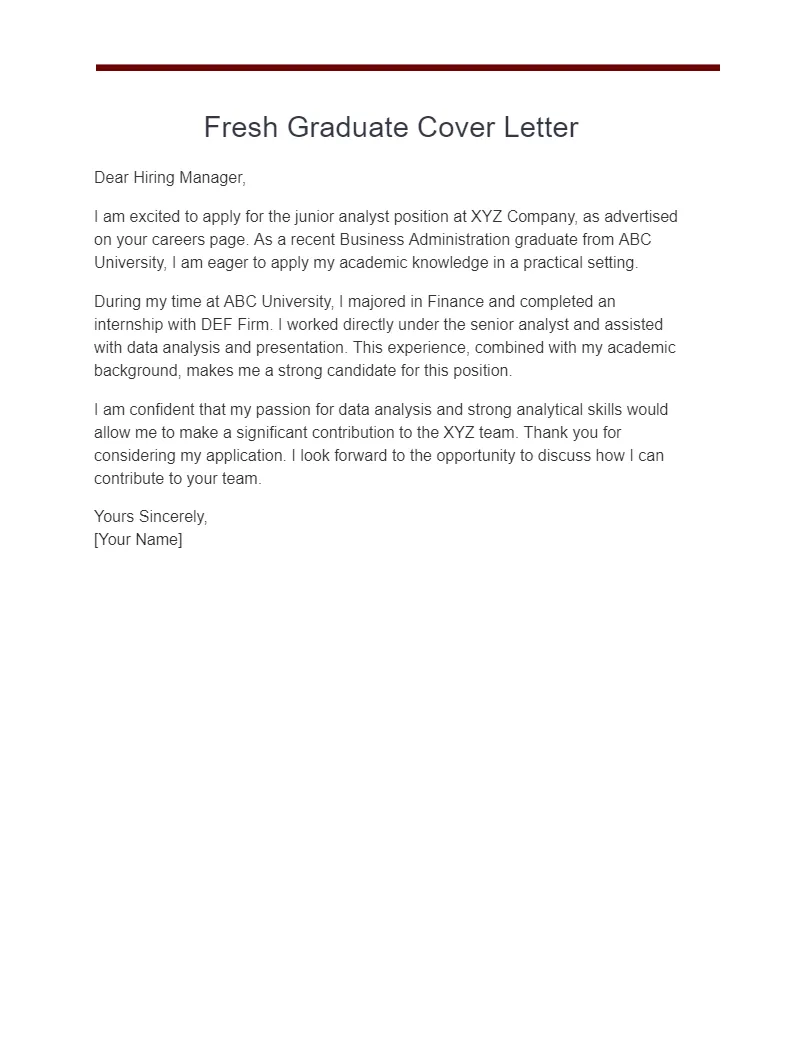
Avoiding common mistakes can significantly enhance your cover letter and improve your chances of success. There are several pitfalls that can undermine your application, from grammatical errors to failing to tailor your letter. Addressing these common errors can make your cover letter stand out and shows the hiring manager that you pay attention to details. Awareness of these common errors will help you refine your cover letter, showcasing your professionalism and increasing your odds of securing an interview. Review your cover letter carefully to eliminate these errors and present yourself in the best possible light, helping you to make a memorable impression and get the job.
Generic and Vague Language
Avoid using generic and vague language. Statements like “I am a hard worker” or “I have excellent communication skills” are not very compelling. Instead, provide specific examples to support your claims. Use action verbs, and showcase how you have demonstrated these skills in the past. For example, rather than writing “I am good at teamwork,” describe a situation where you effectively collaborated with a team to achieve a specific goal. Showcasing specific accomplishments makes your application more credible. It highlights what you bring to the table. Using vivid, specific language will make you appear more competent, as the hiring manager can see the skills you mention in action. Specific and concise language is better than generic phrases.
Typos and Grammatical Errors
Typos and grammatical errors can immediately undermine your credibility. Proofread your cover letter carefully multiple times. Check for spelling mistakes, punctuation errors, and grammatical inconsistencies. Consider having someone else review your letter. These errors can suggest a lack of attention to detail and professionalism. To ensure your application is polished, consider using grammar checking tools, such as Grammarly or the Hemingway Editor, but remember that they should not be the only step. Every error you make can be a setback to your application. A polished and professional cover letter will significantly improve your chances of success and demonstrate your commitment to excellence.
Failing to Tailor the Letter
Failing to tailor your cover letter to each specific job is a common mistake. A generic, one-size-fits-all letter shows a lack of interest and effort. Research the company and the role. Highlight the specific skills and experiences that align with the job requirements. Customize your letter to address the needs of each position. Use keywords from the job description to show that you understand what the employer is looking for. A tailored cover letter demonstrates that you are genuinely interested in the role and have taken the time to understand what the company needs. By showing that you care, you demonstrate your professionalism, and make yourself stand out from the crowd. Tailoring the letter increases the likelihood of a favorable response.
Cover Letter Examples for Different Fields
Cover letter examples for various fields can provide valuable guidance for recent graduates. Reviewing examples specific to your field can offer insights into formatting, language, and the types of skills and experiences to highlight. A well-crafted cover letter example serves as a guide, offering a framework you can adapt to suit your background and the requirements of the job. Using a well-written example as a model allows you to structure your letter effectively. You can also use these examples to identify common industry terminology and showcase how successful applicants present their qualifications. Customizing an existing template will make your application more effective and compelling. Be sure to tailor the example to fit you and your specific needs.
Tips for Sending Your Cover Letter
Once your cover letter is ready, follow some best practices when submitting it. Ensure the format is appropriate for the application. Consider the file type and the method of submission. Attention to detail, such as proper file naming and a professional email body, is essential. Following these best practices can help ensure that your cover letter is reviewed and considered carefully. A professional presentation reflects positively on your qualifications and attention to detail. Properly formatting your application helps you get noticed and increases your chances of success. Always follow the specific instructions provided in the job posting, which ensures you meet the requirements for application and helps make a good first impression.
Choosing the Right Format
When submitting your cover letter, choose the right format to ensure that the hiring manager can easily read it. The most common format is a PDF, which preserves the formatting and layout across different devices and operating systems. Avoid sending your cover letter as a Word document unless the job posting specifically requests it. Always use a professional and easy-to-read font, such as Times New Roman, Arial, or Calibri, and maintain a consistent font size throughout the document. Ensure the formatting is clean and well-organized, with clear headings and easy-to-follow paragraphs. Correct formatting helps the hiring manager to review your letter easily, ensuring the message is conveyed effectively, highlighting your professional approach. The correct format is essential.
Follow-Up Strategies
After submitting your cover letter and resume, it is often a good idea to follow up with the hiring manager or the company. Send a polite email a week or two after submitting your application. Express your continued interest in the position and reiterate your key qualifications. This shows your persistence and enthusiasm. If you do not hear back, you can send a brief email, inquiring about the status of your application. This is a good opportunity to refresh the hiring manager’s memory and demonstrate your ongoing interest. Be respectful of the hiring manager’s time. Be sure to thank them for their consideration and let them know you are available for an interview. A polite and professional follow-up will ensure that you are considered for the role. A well-timed follow-up is a good strategy.
